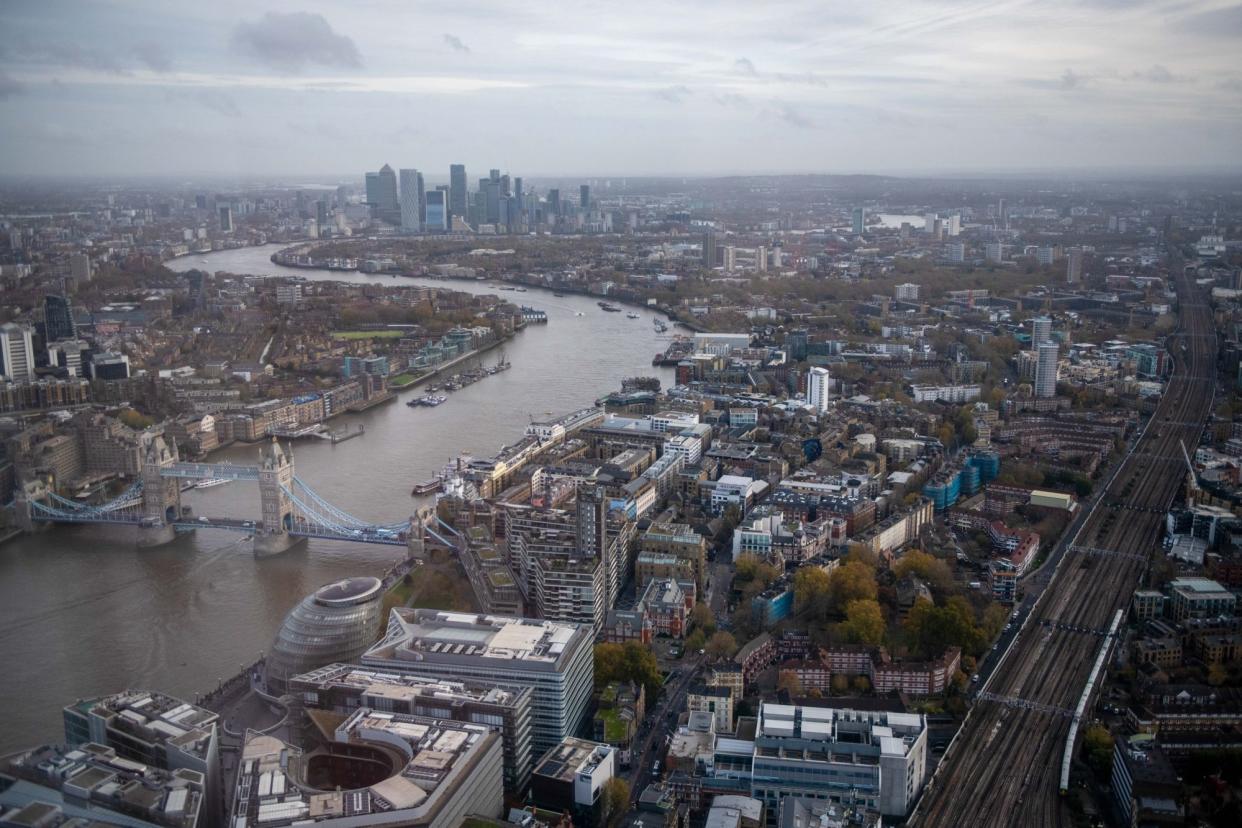UK to Relax Ring-Fencing of Banks as Part of Brexit Big Bang

(Bloomberg) -- The UK government will relax the ring-fencing of banks as part of efforts to deregulate the City of London and get a “Big Bang” out of Brexit, according to a person familiar with Treasury plans.
Most Read from Bloomberg
Musk’s Neuralink Hopes to Implant Computer in Human Brain in Six Months
An Arizona County’s Refusal to Certify Election Results Could Cost GOP a House Seat
Scientists Revive 48,500-Year-Old ‘Zombie Virus’ Buried in Ice
New York, Singapore Are the World’s Most Expensive Cities Right Now
FTX Missing Billions Remain Mystery After Bankman-Fried Grilling
Ring-fencing requires banking groups to separate their retail banking services from their investment and international banking activities. It was part of the government’s response to the global financial crisis in 2008 and was aimed at protecting UK retail banking from shocks emanating from elsewhere.
Banco Santander SA’s UK arm, Virgin Money UK Plc and TSB Bank are set to benefit from the changes, according to the FT, which first reported the plans.
Prime Minister Rishi Sunak’s official spokesman said the reports of changes to the rules are “speculation” and that the British government is still weighing its options.
“There was a review conducted by Treasury and the government is still considering that before coming forward with its response,” Max Blain said to reporters on Wednesday. “We will publish that shortly.”
The ring-fencing regime covers banks with more than £25 billion ($29.9 billion) of core deposits, and means retail banking services like taking deposits from high-street customers and small businesses have to be financially, organizationally and operationally separate from investment banking arms.
It was implemented in January 2019, although a review of the rules led by Keith Skeoch, the former chief executive officer of Abrdn Plc, found ring-fencing was “overly rigid.” The Treasury announced a consultation on Skeoch’s review in 2021.
EXPLAINER: How the UK Plans to Get a ‘Big Bang’ Out of Brexit
City minister Andrew Griffith told a Financial Times banking summit Tuesday: “We can make the UK a better place to be a bank, to release some of that trapped capital over time around the ring-fence.”
The UK’s biggest investment banks will still be ring-fenced, although smaller lenders with more limited trading activities could be freed from the rules, the person familiar said.
Advocates of Britain’s exit from the European Union presented it as an opportunity to sweep aside what they saw as unnecessary rules and regulations that were holding back economic growth. Key to this is a plan to replicate the “Big Bang,” the wave of deregulation in 1986 that turned the City of London into a global finance hub.
Banks had asked the Treasury to scale back the ring-fencing of retail and investment banking. Small lenders had said they would like to cut the amount of loss-absorbing capital they are required to hold.
“Ring-fencing doesn’t work,” Tim Adams, CEO of the Institute of International Finance said on Bloomberg TV Wednesday. “It makes a more brittle system, it precludes institutions’ capacity to move capital around to their best uses.”
--With assistance from Francine Lacqua, Marion Dakers and Joe Mayes.
(Adds government spokesman comment from fourth paragraph.)
Most Read from Bloomberg Businessweek
TikTok’s Viral Challenges Keep Luring Young Kids to Their Deaths
The Avatar Sequel Is a Make-or-Break Moment for Disney’s $71 Billion Fox Deal
Global Debt Costs Are Soaring. Here’s Where It Will Hurt Most
©2022 Bloomberg L.P.


